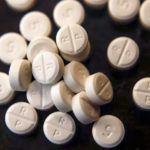Attorney General Holly T. Shikada, joined by the Mayors and Corporation Councils of the County of Hawai‘i, City and County of Honolulu, County of Kaua‘i and the County of Maui, announced the final approval of the $26 billion opioid agreement with the nation’s three major pharmaceutical distributors – Cardinal, McKesson, and AmerisourceBergen – and Johnson & Johnson.
Following successful state sign-on and subdivision sign-on periods, the defendants will start releasing funds to a national administrator on April 2, 2022. Money will start flowing to state and local governments in the second quarter of 2022.
In a press release Attorney General Shikada said, “These settlements do not complete our fight against those who created and fostered the nationwide opioid problem. But with the assistance of our counties, these settlements are a major step forward in finding and funding better solutions.”
The agreement marks the culmination of three years of negotiations to resolve more than 4,000 claims of state and local governments across the country. It is the second largest multi-state agreement in U.S. history, second only to the Tobacco Master Settlement Agreement.
Fifty-two states and territories have signed on to the agreement as well as thousands of local governments across the country. In Hawaiʻi, all four counties have signed on to the agreement. As a result, Hawaiʻi will receive its full share of approximately $73 million, most of which will go to support treatment, recovery, harm reduction, and other strategies to address the opioid epidemic.
In addition to the funds, Cardinal, McKesson, and AmerisourceBergen will:
- Establish a centralized independent clearinghouse to provide all three distributors and state regulators with aggregated data and analytics about where drugs are going and how often, eliminating blind spots in the current systems used by distributors.
- Use data-driven systems to detect suspicious opioid orders from customer pharmacies.
- Terminate customer pharmacies’ ability to receive shipments, and report those companies to state regulators, when they show certain signs of diversion.
- Prohibit shipping of and report suspicious opioid orders.
- Prohibit sales staff from influencing decisions related to identifying suspicious opioid orders.
- Require senior corporate officials to engage in regular oversight of anti-diversion efforts.
Johnson & Johnson is required to:
- Stop selling opioids.
- Not fund or provide grants to third parties for promoting opioids.
- Not lobby on activities related to opioids.
- Share clinical trial data under the Yale University Open Data Access Project.
Additional information about the opioid settlement is available at https://www.morepowerfulnc.org/opioid-settlements/
AP Photo
